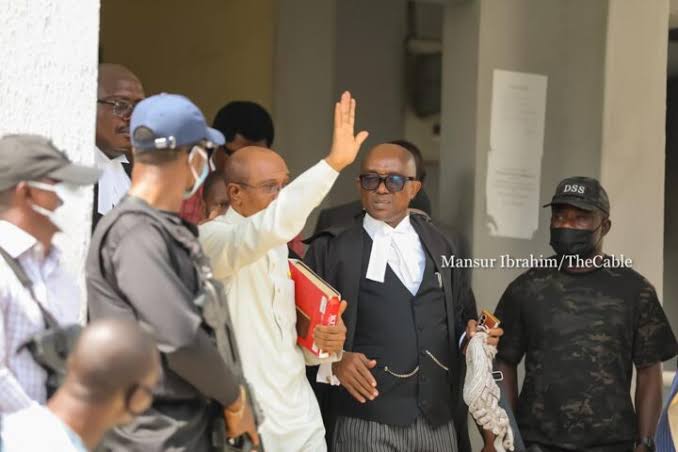IMF Warnings on Nigeria's Rising Fiscal Deficit

The International Monetary Fund (IMF), in its latest Article IV Consultation on Nigeria, has issued a stark warning regarding the country's fiscal health, projecting a significant widening of the consolidated fiscal deficit to 4.7 per cent of GDP in 2025. This projection reverses a modest improvement seen in 2024 and underscores deep-seated vulnerabilities, particularly Nigeria's heavy reliance on oil revenue and mounting expenditure pressures. The IMF's forecast is notably higher than the 3.9 per cent deficit outlined in Nigeria's 2025 federal budget, indicating an anticipated revenue shortfall.
A primary driver of this widening gap is the overly optimistic assumptions within Nigeria's budget regarding oil prices and production. The 2025 budget was based on an oil price of $75-$77 per barrel and production of around 1.7-2 million barrels per day (bpd), including condensates. However, the IMF staff forecast lower production levels, around 1.45-1.5 million bpd, and a global oil price average of $68.5-$70 per barrel. Oil, which contributes approximately two-thirds of Nigeria's government income, has been impacted by global shocks and geopolitical threats, forcing Brent Crude to shed 21.6 per cent so far this year. This discrepancy severely undermines Nigeria's federally retained earnings and constrains overall budget implementation, with the IMF alerting authorities to the danger that financing needs and fiscal position may deviate from forecasts if the budget is not revised.
On the expenditure side, government wage bills and pension liabilities are projected to grow significantly, exacerbated by new wage awards and security force recruitment. Furthermore, the anticipated savings from the removal of the fuel subsidy, hailed as a key fiscal reform milestone, have yielded less than expected. While the government aimed for savings equivalent to 2 per cent of GDP in 2024, the IMF reported that only N1.1 trillion (approximately 0.6 per cent of GDP) was realised, partly due to reintroduced price caps and incomplete market liberalization. A critical concern highlighted by the IMF's debt sustainability analysis is that interest payments already consume a staggering over 100 per cent of federal revenue, raising fears about future borrowing and debt rollover risks. Nigeria's public debt-to-GDP ratio, while moderate at around 46 per cent, is becoming increasingly unsustainable given that over 70 per cent of federal government borrowing is at double-digit domestic interest rates.
Despite these fiscal challenges, the International Monetary Fund has commended the **Central Bank of Nigeria (CBN)** for its significant monetary policy reforms over the past two years, which have bolstered macroeconomic stability and enhanced resilience. The CBN's efforts to strengthen the banking sector, including the ongoing recapitalisation process by March 2026, aim to ensure banks can absorb future shocks and enhance credit access, supporting the vision for a $1 trillion Nigerian economy. Key reforms in the foreign exchange market, such as the elimination of the multiple exchange-rate system and the introduction of a “willing-buyer, willing-seller” framework supported by a digital trading platform (B-Match), have improved price discovery and enhanced dollar liquidity. Consequently, gross and net international reserves increased in 2024, with a strong current account surplus and improved portfolio inflows, leading to a significant decrease in the forex premium (gap between official and parallel markets) from over 60 per cent to below three per cent. Investor confidence has strengthened, leading to renewed portfolio inflows and the country's successful return to the Eurobond market.
The **CBN**, under Governor Cardoso, has maintained a tight monetary policy stance, which the IMF directors noted should be sustained until disinflation is firmly established, and welcomed the cessation of deficit monetisation through the Ways and Means facility. Efforts to strengthen central bank governance are seen as crucial steps toward laying a solid institutional foundation for effective inflation targeting. The central bank is also expanding access to banking services for previously excluded demographics through digital platforms and financial literacy programmes, and has streamlined dollar inflows for FX dealers through new diaspora-focused products, licensing additional International Money Transfer Operators (IMTOs), and ensuring timely naira liquidity access for IMTOs. Diaspora remittances, estimated at $23 billion annually, are a dependable source of foreign exchange, and CBN initiatives are supporting continued growth in these inflows.
Regarding revenue generation, the IMF acknowledged progress on tax reforms, noting that modernizing the Value Added Tax (VAT) and Company Income Tax (CIT) systems should enhance compliance and facilitate implementation, with significant medium-term revenue potential. President Bola Tinubu recently signed four tax reform bills into law, including the Nigeria Tax Bill, Nigeria Tax Administration Bill, Nigeria Revenue Service (Establishment) Bill, and Joint Revenue Board (Establishment) Bill. However, the implementation has been patchy across states, and Nigeria’s general government revenue at 7.3 per cent of GDP in 2024 remains far below the sub-Saharan African average of 13–15 per cent. The IMF recommended accelerating tax reforms, particularly by unifying VAT administration, expanding excise coverage, and removing inefficient tax exemptions.
To bridge the fiscal gap and ensure long-term sustainability, the IMF urged Nigerian authorities to recalibrate fiscal policies and budget expectations. Key recommendations include fully liberalizing the fuel market to capture the full value of subsidy removal, establishing an automatic petrol pricing formula, rationalizing capital spending by prioritizing high-return projects, capping recurrent expenditure growth, and establishing a fiscal anchor such as a debt service-to-revenue cap to guide borrowing and expenditure discipline. While acknowledging that significant challenges persist, such as security concerns, red tape, agricultural productivity issues, and infrastructure gaps (including electricity supply), the IMF projects real GDP growth of 3.4 per cent in 2025, supported by the new domestic refinery, higher oil production, and a strong services sector. Medium-term growth is expected to remain around 3.5 per cent, supported by domestic reform gains.
The IMF's endorsement of Nigeria's monetary reforms, alongside its candid feedback on fiscal adjustments, marks a crucial juncture in the country's economic journey. The coordinated efforts between monetary and fiscal authorities, with the CBN maintaining a disciplined and transparent approach and the government pursuing tax reforms and budget recalibration, are essential. Sustaining these reforms in the face of political pushback, revenue shortfalls, and inflationary pressures will be key to stabilizing Nigeria’s fiscal health, attracting long-term investment, and laying the groundwork for achieving a more inclusive, stable, and diversified economy in the coming years.








